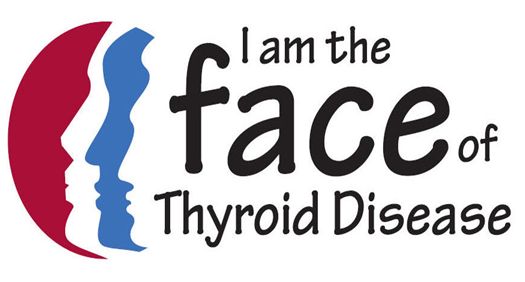Let’s start with the basics: do you even know where your thyroid is?
A small, butterfly-shaped gland located at the base of the neck (just below the Adam’s apple), the thyroid influences the function of the heart, brain, liver, kidneys and skin. That’s why it’s so important to know if you have a thyroid problem – especially if you’re a woman. Women are five times more likely than men to suffer from hypothyroidism, which occurs when the gland does not produce enough thyroid hormone for the body to function properly. Hypothyroidism can cause weight gain, miscarriages, forgetfulness, irregular menstrual periods and numerous other symptoms.
January is Thyroid Awareness Month, which means it’s a good time to “check your neck.” As many as 30 million Americans may have thyroid problems, but more than half of them remain undiagnosed. To help combat this lack of awareness, two thyroid disease patient advocates – Mary Shomon and Katie Schwartz – have created a new campaign called “I Am the Face of Thyroid Disease.” It features video messages and photos from around the world to “shine a spotlight on the diversity of thyroid patients and their practitioners, and help overcome the stigma and silence surrounding thyroid disease.”
This diversity can also be seen in PatientsLikeMe’s hypothyroidism community, where more than 2,200 patients (8% of whom are male) report the disease. Some of the most commonly reported symptoms in our community include cold intolerance, dry skin and lethargy, while one of the top reported treatments is Levothyroxine (branded as Synthroid, Levoxyl, Levothroid and more), a synthetic form of the human hormone thyroxine. 190 patients with hypothyroidism have shared in-depth treatment evaluations of Levothyroxine, detailing their experiences with effectiveness, side effects, cost and more. These evaluations also contain a wealth of tips and advice.
Here’s what one long-time Levothyroxine user writes on her evaluation:
“I have taken this for 31 years now. If you do need to take this, please pay attention how you feel. If you have symptoms such as dry skin and feeling tired all the time, it might be that you’re not getting enough of it. You might need to up the dosage. If you have heart racing and you’re losing lots of weight, etc., it might be you’re getting too much. Don't forget to get a yearly blood test to make sure your dosage level is correct.”
We also have a little over 100 patients (12% of whom are male) reporting hyperthyroidism, a less common form of thyroid disease that occurs when the thyroid gland produces too much thyroid hormone. Some of the most commonly reported symptoms include heat intolerance, excessive sweating and palpitations. Along with those who have other forms of thyroid disease – including Hashimoto Thyroiditis – more than 8,000 members belong to the Endocrine, Metabolism and Nutrition Forum, where they can discuss their thyroid experiences with others like them.
Think you might have a thyroid problem? Perform your own “neck check” at home (to detect any bulges or enlargement in your thyroid gland) and/or see your doctor for a thyroid evaluation today. A simple blood test called the TSH test can tell you whether your thyroid gland is functioning normally. If you’ve already been diagnosed, gain wisdom from connecting with thousands of others like you at PatientsLikeMe.


